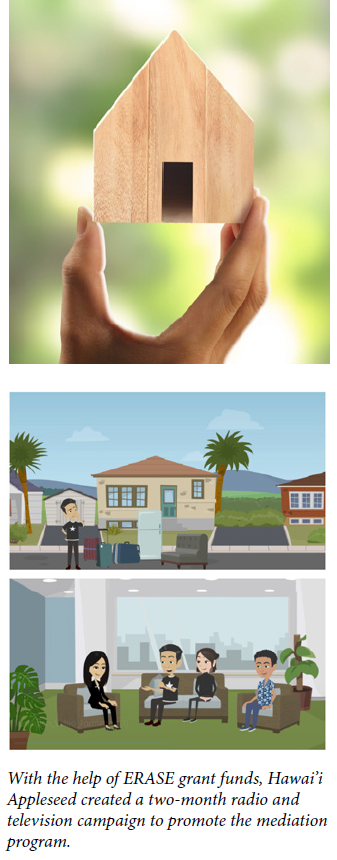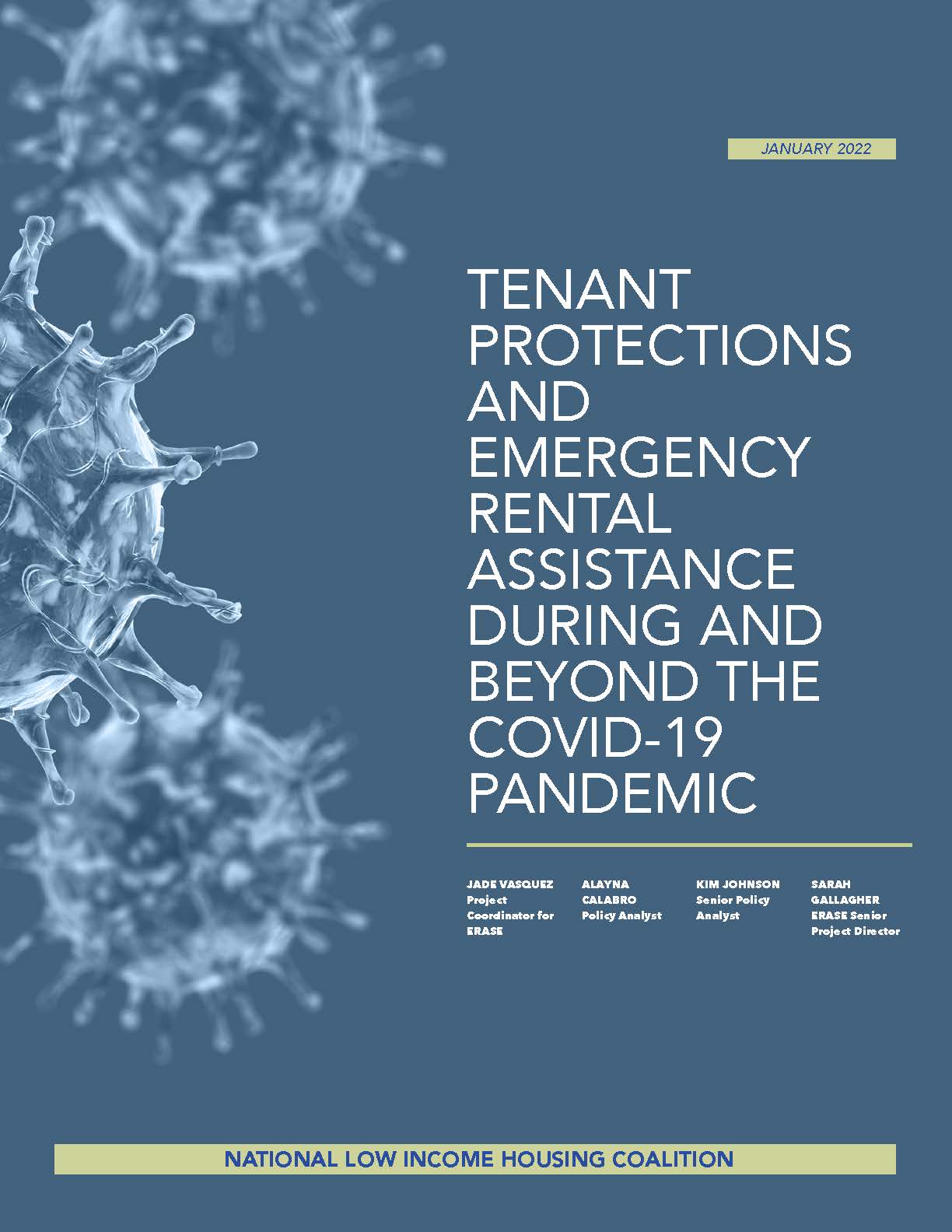The Power of Visible and Easy-to-Find Emergency Rental Assistance
by Foluke Akanni, housing policy organizer, Housing Action Illinois
Kimberly Rhymes, who lives in southern Illinois, was diagnosed with cancer a few years ago. When COVID-19 started spreading, she wasn’t able to work and got behind on rent. While getting treatment at SIH Cancer Institute at Southern Illinois Healthcare, one of the employees gave her Sue Herbert’s number. Sue is a caseworker at Land of Lincoln Legal Aid.
Land of Lincoln Aid is one of the organizations funded through EvictionHelpIllinois.org, an initiative of the Illinois Department of Human Services (IDHS) and the Illinois Equal Justice Foundation that provides free legal aid, mediation services, and connections to other resources. In addition to providing legal representation to people facing eviction, one of the main goals of EvictionHelpIllinois.org is to make sure people know about available emergency rental assistance resources.
Sue talked with Kim about a couple of programs that she was able to apply to, which included IDHS’s Emergency Rental Assistance Program (ERAP), as well as monthly disability benefits. The ERAP dollars were used to pay Kim’s back rent and some future rent until her disability payment started in December 2021.
Kim credits ERAP with helping her stay housed as she fights cancer. “If it wasn’t for the program, I’ll be out in the cold,” said Kimberly. She encourages anyone who needs the funding and is eligible to apply. Kim is just one example of what happens when service providers, including healthcare professionals, are aware of the life-changing ERA programs in their communities.
Serving All Communities: Making ERA More Accessible
by Dr. Tolulope Ola, founder and Executive Director, Restoration for All Minnesota (REFA)
Restoration for All Minnesota (REFA) conducts community-based outreach to the families of Black and Indigenous people and people of color (BIPOC) living in Minnesota. In the past year, we engaged with 350 BIPOC households and learned about each family’s unique struggles to navigate and secure emergency rental assistance. REFA also worked with Dakota County, Minnesota, through a grant from the Pohlad Foundation to identify households that may benefit from services designed to help them avoid eviction and remain stably housed.
REFA bases its outreach and service programs on the principle that successful programs are those that are culturally appropriate and responsive to the lives of Black and Indigenous people and people of color. Through our programs, we aim to increase access to eviction prevention assistance resources for people in low-income populations. We achieve success through frequent outreach to the community and by working with community partners to identify and address the root causes of housing instability.
REFA’s mission is to nurture and empower individuals, organizations, and communities to discover, renew, and restore their cultural connections and achieve improved economic and socio-cultural well-being. In line with this mission, we conducted a door-knocking campaign to share information and handed out flyers in five different languages (English, Somali, Spanish, Oromo, and Amharic). The door-knocking campaign was an effective way to find out about the issues tenants face that prevent them from accessing rental assistance because the campaign was about listening, observing, and trust-building. We also attended community events that were culturally specific (Somali Independence Day and Juneteenth celebrations, for example), where we distributed flyers and offered referrals to other housing-stability resources.
The Hawai’i Tenant-Landlord Mediation Program: A Story in Preventive Success by Hawai’i Appleseed
Following the end of Hawai’i’s eviction moratorium in August 2021, the state established a landlord-tenant mediation program (through Act 57) to prevent the eviction of tenants who are behind on rent. The program requires that, before filing an eviction, a landlord must present a notice to the tenant providing the opportunity to schedule a mediation session within 15 days of the date of the notice. If the tenant decides to pursue mediation, the landlord cannot proceed with the eviction until 30 days after the date of the notice.
A typical mediation session lasts an hour and a half and is facilitated by an experienced, impartial mediator who assists the tenant and landlord in negotiating an agreement that ideally allows the tenant to remain in the unit and repay the landlord any rent owed. The process also gives tenants access to rental assistance. Prior to the implementation of the program, tenants were given only 20 to 30 minutes during an eviction hearing to attempt to mediate with their landlord.
Hawai‘i has five mediation sites: one on each of the islands of Kaua’i, O’ahu, and Maui, and two on Hawai’i Island. Since August 2021, the five centers have provided mediation for 700 tenant-landlord cases. Nearly 90% of the mediation sessions resulted in an agreement between tenant and landlord and allowed the tenant to remain housed.
Unfortunately, over half of all tenants who receive eviction notices do not pursue mediation. Many tenants move out immediately when they receive a notice from their landlord, and others are reluctant to participate due to a lack of familiarity with mediation, which some perceive as involving the court system. Further engagement with and education of at-risk tenants would ensure that tenant-landlord mediation is better utilized.
Expanding Tenant Protections during the Pandemic
 The pandemic and resulting historic aid to renters have profoundly reshaped the housing landscape in the United States, in part because states and localities across the country have recognized the crucial role tenant protections play in preventing evictions and ensuring housing stability for low-income renters, Black and Indigenous people and people of color (BIPOC), and other marginalized households. In 2021 alone, states and localities passed or implemented over 130 new laws or policies to protect tenants from eviction and keep them stably housed.
The pandemic and resulting historic aid to renters have profoundly reshaped the housing landscape in the United States, in part because states and localities across the country have recognized the crucial role tenant protections play in preventing evictions and ensuring housing stability for low-income renters, Black and Indigenous people and people of color (BIPOC), and other marginalized households. In 2021 alone, states and localities passed or implemented over 130 new laws or policies to protect tenants from eviction and keep them stably housed.
In January 2022, NLIHC released a new report, Tenant Protections and Emergency Rental Assistance during and beyond the COVID-19 Pandemic. The report describes and analyzes new tenant protections and emergency rental assistance (ERA)-related policies enacted or implemented by states and local governments in 2021. The protections examined in the report include state and local eviction moratoriums, pauses on the eviction process to allow for ERA application processing, and mandates to increase information about ERA and limit tenant fees. The report also looks at regulations that increase tenant representation during the eviction process, such as those that offer right to counsel, and protections that reduce discrimination and promote housing stability, such as source-of-income discrimination laws and legislation that seals or expunges eviction records.
In addition to encouraging more states and localities to adopt laws or policies to protect tenants, the report urges states and localities to assess their tenant-protection laws and programs to ensure maximum effectiveness in preventing evictions.
The federal government can also take steps to support state and local renter protections. For example, Congress can authorize and fund a permanent program to provide emergency rental assistance – such as that proposed in the “Eviction Crisis Act” – to ensure housing stability for households that experience financial shocks after the pandemic ends.
Advocating to Elected Officials about Emergency Rental Assistance Programs
by Francisca Blanc, Assistant Executive Director, Utah Housing Coalition
As a grassroots and now professional advocate, I’ve always tried to find new relationships and build partnerships in support of the causes I care about. Affordable housing is something that most people – if not all – would agree is needed in every community. Most of the disagreements about housing stem from questions about how to achieve such a lofty goal.
As a housing advocate, I realized early on that interpersonal communication is the most important skill. It is a skill you have to work on over time, and it is one you can develop by speaking to elected officials (federal, state, and local) and their staffs. For tenants, renter residents, and professional advocates, the same advice applies: research your issues, draft concise talking points, and prepare before you speak to elected officials. Find a way to speak about common ground.
Another practice I learned is to always approach the folks who might disagree with you in the same way you approach the ones you agree with. Imagine that you are having a conversation with someone you get along with. I always found that being relaxed and exchanging pleasantries works. They know why you want to talk to them. It is their job to listen and learn about their constituents’ issues.
One other thing I learned over the years is that persistence and respect pay off. Making good trouble is the core of advocacy.
So how can you be more involved? Your experience brings value to the cause. That’s why written or verbal testimonies are so crucial. Policy reviews and proposals don’t have any value if we can’t show how they impact real people in real time.
If you, your neighbor, co-worker, friend, or family member received emergency rental assistance, our elected officials need to know about its impact. You can reach out to staff at your local office by calling them, emailing them, or sending them a letter. Regardless of the method you choose, when you are writing your story, always think about the Who, What, When, Where, and Why. Expressing yourself concisely is the best way to make sure your voice is heard.
Here is some sample text you can adapt when contacting your elected officials:
My name is Francisca Blanc, and I’m a tenant living at ABC apartment building. Last November, I applied for Emergency Rental Assistance at the XYZ County Center. I needed the help because my hours were reduced due to COVID-19 and I couldn’t pay my rent on time. The help I received made it possible to keep my apartment and not become homeless. We hope that you can support more programs like this in the future.
The voices of tenants, renters, and resident advocates matter the most in making sure that Emergency Rental Assistance works as it was intended – to keep our tenants housed.